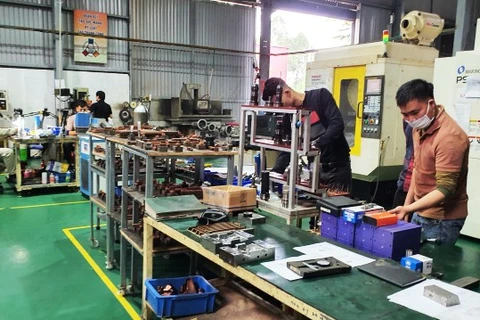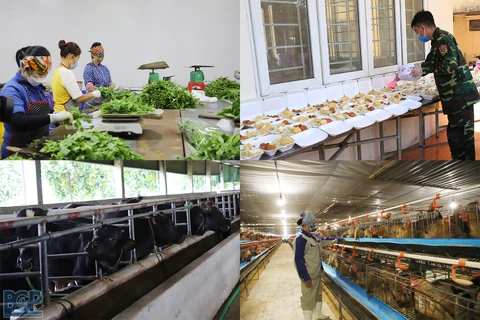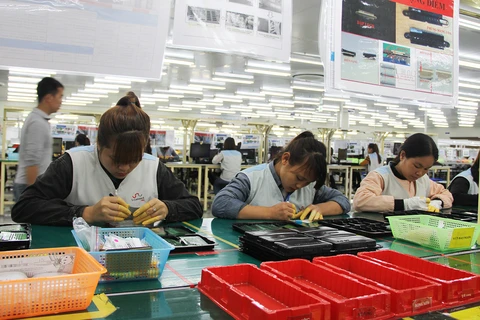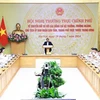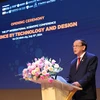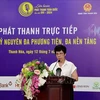Bac Giang (VNA) – The northern province of Bac Giang has designed a plan to strengthen digital transformation and technology application to support the building of new-style rural areas.
According to the provincial People’s Committee, along with boosting rural economic development and narrowing the growth gap between rural and urban areas, the plan aims to build smart new-style rural areas.
Specifically, Bac Giang aims to process at least 95% of document-based workload at the provincial level, 85% at district level and 60% at communal level online by 2025.
Meanwhile, 97% of all communes are expected to complete the criteria in applying IT in managing and operation activities as part of the new-style rural building programme.
The province also strives for at least 70% of district-level administrative units finish the programme’s criteria in security-public administration, and 100% of management officials engaging in the new-style rural area building programme take training courses in digital transformation.
By 2025, Bac Giang hopes for 70% of cooperatives and 70% of districts having their connection models for the selling of major agricultural products, along with 50% of the models attached to digital technologies.
At the same time, the province expects at least 15 communes recognised as smart new-style rural areas, while building a centrally-managed e-commerce commune model at Phuc Hoa commune in Tan Yen district, and a locally-managed e-commerce commune model at Hong Giang commune of Luc Ngan district.
To this end, Bac Giang has strengthened communications to improve public awareness of digital transformation, while giving training courses to local officials to provide them with knowledge in digital transformation. It will also focus on promoting economic growth in rural areas, while developing infrastructure system for Internet connections in communes and villages, along with the technical infrastructure for the development of other sectors such as education, health care, culture, tourism and e-commerce.
In the 2021-2025 period, the capital for the implementation of the new-style rural area building programme of Bac Giang is over 1.12 trillion VND (47.72 million USD).
As of May 2023, Bac Giang had six out of 10 districts recognised as new-style rural areas, and 144 out of 182 communes becoming new-style rural communes, or 79.1%, along with 43 advanced new-style rural communes, one model new-style rural communes, and 243 model new-style rural villages. On the average, each commune in the province has completed 17.1 out of 19 criteria of the new-style rural area building programme.
Currently, 100% of communes in Bac Giang have telecommunication services. Meanwhile, 100% of provincial-level and district-level healthcare facilities have been connected online with central hospitals. The percentage of local people who have their health managed on the electronic health record software system has reached 95.8%.
In the 2021-2025 period, a new-style rural commune has to meet 19 criteria in many fields, including planning, socio-economic infrastructure, economy and production, socio-culture and environment. The criteria are specified for different regions.
Under the programme in the 2021-2025 period, in order to be recognised as an exemplary new rural area, a commune must have at least one smart village, based on criteria issued by the provincial authorities.
Other criteria include effectively operating cooperatives and production-selling connection models, implementing origin tracking regulations on their major products and developing farming areas meeting VietGAP standards.
At the same time, they must satisfy criteria on healthcare insurance coverage, the rate of malnutrition among children under five years old, and the rate of residents having electronic medical records.
They must show strong performance in environmental protection, especially and advanced waste treatment system, along with criteria on food safety.
Meanwhile, an advanced new-style rural commune must meet all criteria of a basic new-style rural area and have higher standards across all 19 criteria./.


